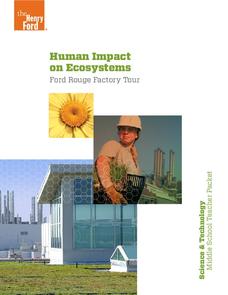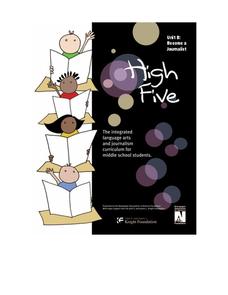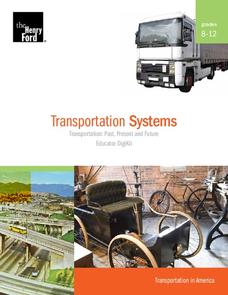PBS
To Kill a Mockingbird Teacher's Guide
If you're planning a unit on To Kill a Mockingbird by Harper Lee, don't pass this resource by! It includes thorough discussion questions and vocabulary from the novel, research opportunities, and writing prompts to extend learning...
Echoes & Reflections
The Children and Legacies Beyond the Holocaust
Using video testimony, primary source documents that detail international agreements, and structured discussions, learners consider the precarious position of children during the Holocaust and other international conflicts, and how to...
American Press Institute
Introductory News Literacy
Aspiring journalists learn about media literacy, journalism, and the press. Units come complete with handouts, assignment rubrics, notes, and extension suggestions. Each unit also comes with a list of vocabulary words and learning...
Santa Ana Unified School District
The Giver
Wouldn't it be great to live an a community without pain, without danger? Such a society is the goal of the community in The Giver. Using Lois Lowry's dystopian novel as the core text, class members read primary source materials about...
Henry Ford Museum
Human Impact on Ecosystems
An environmenta science unit includes three lessons plus a cumulative project covering the ecosystem. Scholars follow the history of the Ford Rouge Factory from its construction on wetlands and how it destroyed the environment to its...
Dream of a Nation
Creating Awareness through Action Oriented Writing and Research
Middle schoolers aren't too young to feel strongly about politics, social issues, consumer rights, or environmental problems. Demonstrate the first steps toward social change with a project about action-oriented writing. Eighth graders...
Common Sense Media
Which Me Should I Be?
Impress upon learners the importance of considering how we identify ourselves online, and how this relates to overall considerations of safety and digital wellness.
Read It Later, Inc
Can't read this now, I'll have to check it out later. A teacher's time is always limited. So often as we peruse the web for personal and professional content, we come across sites and information that we cannot immediately browse. Enter,...
Boward County Public Schools
Hoot Activities
If you're looking for engaging, cross-curricular, inquiry-based activities and projects to support your class reading of Carl Hiaasen's Hoot, you've come to the right place!
Online Publications
Become a Journalist
Explore the newspaper as a unique entity with a detailed and extended unit. The unit requires learners to consider the newspaper's role in democracy, think about ethics, practice writing and interviewing, and examine advertising and news...
Henry Ford Museum
Transportation Systems
Learners analyze the evolution of cultural attitudes through the lens of transportation, examining several artifacts, documents, and photographs. Topics covered include how American attitudes have influenced society's evolution into a...
Curated OER
Youth Emergency Preparedness
What is an emergency, why is preparing for one important, and how can your pupils help others prepare for an emergency? Answer these questions and more with a short unit. Learners will participate in a variety of collaborative,...
Curated OER
Plagiarism Workshop
What do George Harrison, Vanilla Ice, and Steven Ambrose all have in common? The Warner Brothers’ films Batman Forever and The Devil’s Advocate? All are guilty of plagiarism. And if you are considering a research project and want to...
Curated OER
Who Could Have Been Who
Can word choice affect a candidate's likeability? Use a New York Times lesson to explore how a presidential candidate's likeability factor can fluctuate in public opinion polls. Young readers choose a presidential election from their...
Carolina K-12
The Revolutionary Times
Be sure to grab a copy of the Revolutionary Times! Scholars take a step back in time to report on topics set in the revolutionary period. Events include the ride of Paul Revere, the Battle of Saratoga, and more.
K20 LEARN
Multimodal Narrative Writing: Thumbprint Autobiography
Thumbprints, like people, are unique. Middle schoolers watch videos that explain how fingerprints are created and why they are unique. Learners then respond to guiding questions about themselves and use these details to create their...
J. Paul Getty Trust
Exhibiting Common Threads
Artists working in different media often explore the same themes—to model how these same themes weave their way through different forms of artistic expression, scholars analyze images by Dorothea Lange, identifying key themes in her...
Teaching Tolerance
In Our Own Words: A Story Book with a Purpose
Academics turn into storytellers in an engaging activity on activism. The activity focuses on promoting social change in local communities with stories. Young historians plan a storybook to target a specific audience and social issue and...
University of Oklahoma
Learning About Special Education
The lessons in the second unit in a three-unit series provide students with the historical background of disability education. After reading about events that impacted attitudes towards disabilities and how learners are identified for...
University of Oklahoma
Improving My Communication Skills
The two lessons in the fifth unit in this series are designed to help students with disabilities improve their communication skills. The first lesson has class members practice strategies and skills for appropriate communication. They...
University of Oklahoma
Advocating For My Needs After High School
A three-lesson unit teaches learners with special needs how to advocate for their needs after high school. Class members review appropriate was to disclose their disability during interviews and applications, and how to request...
University of Oklahoma
Developing My Resources
Learners with special needs create Summary of Performance (SOP), a written document which describes their disability, its impact on their daily life, ways they have learned to compensate, their personal strengths, and their goals. The...
University of Oklahoma
Understanding My Rights and Responsibilities
Three scripted lessons comprise a unit designed to inform special needs students about their rights and responsibilities in high school. In the first lesson class members examine the Individuals with Disabilities Act (IDEA), Child Find,...
EngageNY
Informational Essay Planning: Studying the Essay Prompt and Gathering Evidence
Using a Gathering Evidence note-catcher, readers record evidence in A Mighty Long Way and Little Rock Girl 1957. They then use the evidence to analyze and discuss different mediums with their peers. Lastly, they look at a writing prompt...

























